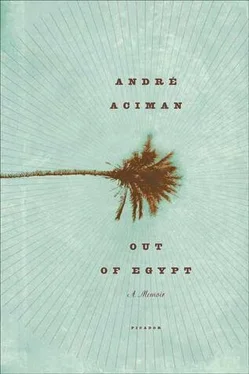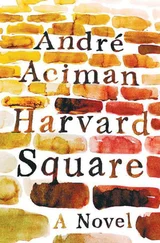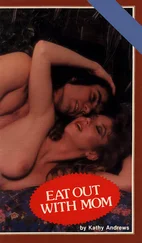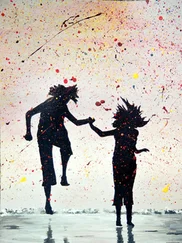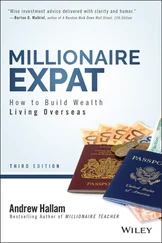The Schwab’s half sister did not hear this exchange. She took off her ring, placed it next to the keys, and began playing something by Schubert. Everyone was overjoyed.
And she played till very late that night, till one after the other, everyone had gone to sleep, and she played softly every night, ignoring the men who were growing tired of waiting up for her, deriding Esther’s son and his shallow Wertherisms when they ended up alone in the living room one night and she had stopped playing and he had tried to kiss away all that heartless talk of love in the time of war. In the maid Latifa’s room, which was Flora’s now, she had taken off her ring again and her earrings and, depositing her glass of cognac on a makeshift bedstand, had said, “Now you can kiss me.” But she kissed him first. “It means nothing,” she added as she looked away and lit the kerosene lamp, bringing down the wick till it glowed less than her cigarette. “As long as we’re clear that it means nothing,” she said almost enjoying the cruelty with which she foisted despair on everyone.
Then came the wonderful news. The British Eighth Army had managed to halt Rommel’s advance at El Alamein and, in the fall of 1942, finally mounted a decisive attack upon the Afrika Korps. The battle lasted twelve days. At night, everyone in the family would stand for hours on the balcony, as if waiting for holiday fireworks, straining their eyes west of the city to catch a glimpse of the historic battle that was to decide their fates. Some smoked, others chatted among themselves or with neighbors upstairs or downstairs, likewise perched on their balconies, waving at one another, grimacing hope and resignation, while, from emptied rooms, came an incessant crackle of shortwave bulletins announcing the most recent developments in North Africa. A distant, half-inch halo hovered over the western horizon, swaying in the blackout, suddenly beaming like an approaching vehicle coming uphill, only to fade again, a pale amber moon on a misty night. All they heard was a distant, muffled drone, like the whir of fans on quiet summer evenings or the sound of the large refrigerator humming in the pantry. People went to sleep to the faraway rumble of battle.
“See? All your fears of being taken away have come to nothing. Didn’t I tell you?” said Vili to his sister Marta when it became clear that the British had scored a decisive victory.
Everyone was readying to leave the old mother’s home. Yet the preparations were slow, uncertain, even dilatory, partly because everyone had grown accustomed to the refugee lifestyle and was reluctant to abandon its solidarity, but also because no one wanted to tempt providence by proclaiming all danger averted. “What’s the hurry?” said my great-grandmother. “There are still many pigeons and chickens left. Besides, one never knows with the Germans. They could be back in a matter of weeks.” Packing, however, continued.
As a going-away gift, the old mother decided to give each of her sons and daughters a crystal goblet bearing golden fleurs-de-lis. They had been manufactured in their father’s glass factory in Turkey.
“This is the last time this apartment will ever house so many,” the old woman explained.
“The way the world is going, I wouldn’t be so sure,” said Esther.
Esther was right. The family would seek refuge in the old matriarch’s home on three subsequent occasions: once during the Suez War, in 1956; then a decade later; and once, earlier, in 1948, after Vili was hunted down by Zionist agents who beat him severely for spying for the British and then threatened to do the same to other men in the family. Two months later Vili got wind they were on his tracks again and that this time they meant to kill him. He took cover in his mother’s home. One day, he took out his good-luck pendulum and on the table placed a cyanide pill he had been keeping ever since the days of El Alamein. The pendulum said no.
Vili was spirited away to Italy, then to England, where he changed names, converted to Christianity, and forswore all previous nationalities. But it was only about four years later that he resurfaced in Egypt for what proved to be the most spectacular business deal in his career as spy, soldier, and swindler: the auctioning of the deposed king’s property.
“It was the end of the end,” he explained many years later in his garden in Surrey. “The end of an era, the end of a world. Everything fell apart after that.”
By now he was in his middle eighties, he liked horses, candies, and dirty jokes, using a fist at the end of a stiffened forearm to illustrate the ribald tales which he liked to tell in the old style: with bawdy gestures and exaggerated pantomime. Wearing old tweeds, Clark boots, an ascot, and a stained cashmere cardigan, he looked the part he had been rehearsing all his life: a Victorian gentleman who couldn’t care less what his inferiors thought of either him or his clothes. What made his aristocratic bearing especially convincing was that, on looking at him, one immediately suspected poverty.
He had shown me his orchard where nothing good ever grew, the huge lake in need of sprucing up—“But who cares”—the stables with more horses than there was room for, and beyond these, the woods where no one dared take a walk, a sort of Jane Austen world gone feral. “I don’t know,” he answered when I asked what his woods abutted. “I suppose a neighbor. But then, these English lords, whoever really knows them?”
It was not true. He knew them quite well. In fact, he knew everyone. At the local post office, at the bank, and at one of the pubs where he offered me a beer, everyone knew Dr. Spingarn. “Well, hello” and “Cheerio” slipped from his tongue as though he had spoken English from the day he was born. He knew everything there was to know about soccer. When a Mini Morris stopped us on our way to town one morning, I realized how thoroughly grafted he was onto his new homeland. This was Lady Something-or-other on her way to London, wanting to know whether there was anything he needed. “No trouble at all,” she said after he finally agreed to let her pick up a case of French wine at some merchant. “Sans façons,” she added, pleased to show off her French and promising to have Arthur, the lord himself, deliver it this evening. “ Entendu, ” we heard her say as she rolled up her window and began speeding up the quiet country road, headed toward the highway.
“She’s as dry as a pitted prune, that one. Like all Englishwomen.”
“I thought she was very nice,” I protested, reminding him that the lady had first gone to his home and, on being told he was out for a walk, had driven about looking for him. “Very nice, very nice,” he repeated, “all of them are very nice here. You don’t understand a thing.”
In town, Vili waved at the local antiques dealer and decided to pay him a visit.
“Good morning, Dr. Spingarn,” said the dealer.
“Greetings,” he replied and introduced me. “Have you found my Turkish coffeepot yet?”
“Still looking, still looking,” chanted the dealer, as he continued to dust an old clock.
“It’s been nine years,” chuckled Vili. “I’m afraid I’ll die before you find it.”
“No fearing that, Dr. Spingarn. You’ll outlive us all, sir.”
“They’re slower than Arabs and twice as stupid. How on earth did they ever manage to have an empire once?” he said as soon as we stepped outside the shop.
Back at home, his wife, daughter, and married grandson and great-grandchild were waiting for us. “See this table?” He palmed the huge antique oak dining table on which food was being served. “I paid five pounds for it. And see these chairs? There were twelve of them. Seven pounds the lot, with eight more in the attic. And this huge clock here? Guess how much.” “One pound,” I guessed. “Wrong! I paid nothing at all for it. It came with the chairs.” He burst out laughing as he spread a thick piece of butter on a slice of bread.
Читать дальше
